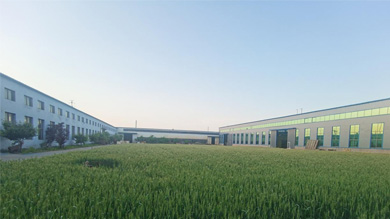11 月 . 01, 2024 19:43 Back to list
Understanding the Function and Applications of Industrial Check Valves in Fluid Systems
Understanding Industrial Check Valves Functions and Applications
Industrial check valves play a crucial role in various applications across multiple sectors, ensuring the safe and efficient operation of fluid systems. A check valve, also known as a non-return valve, is designed to allow fluid to flow in one direction while preventing backflow. This essential functionality is pivotal in maintaining system integrity and protecting equipment from potential damage, making understanding their design and functionality important for engineers and operators.
The basic design of a check valve consists of a disc or ball that serves as a closure mechanism. When fluid flows in the intended direction, the force of the fluid opens the valve, allowing it to pass through. If the flow reverses, the closure mechanism is forced against its seat, effectively sealing the valve and preventing backflow. This mechanism is crucial in systems where backflow can lead to contamination, equipment damage, or other operational inefficiencies.
There are various types of check valves available, each suited for specific applications. The most common types include swing check valves, lift check valves, and ball check valves. Swing check valves utilize a hinged disc that swings open and closed; they are often employed in applications where space is limited. Lift check valves, on the other hand, use a disc that lifts off its seat, making them suitable for high-pressure systems. Ball check valves feature a spherical closure element that moves to block reverse flow, offering a compact design ideal for smaller pipelines.
industrial check valve

The selection of the right check valve depends on several factors, including the type of fluid, pressure, temperature, and the specific application requirements. For instance, in the oil and gas industry, robust and durable check valves are required to withstand extreme conditions. In water treatment facilities, corrosion-resistant materials are essential for longevity and reliability.
In addition to their functional benefits, industrial check valves also contribute to overall system efficiency. Preventing backflow helps maintain pressure levels and energy efficiency, reducing the need for additional pumping or treatment resources. Consequently, check valves not only enhance the safety and reliability of fluid systems but also lead to cost savings over time.
In conclusion, industrial check valves are vital components in fluid handling systems across various industries. Their ability to prevent backflow ensures operational efficiency, protects equipment, and enhances system integrity. Understanding the different types and applications of check valves allows for optimized selection, ultimately leading to safer and more efficient industrial processes. As industries continue to evolve, the importance of reliable check valve technology will only grow, making it an essential area of focus for engineers and operators alike.
Share
-
Understanding the Differences Between Wafer Type Butterfly Valve and Lugged Butterfly ValveNewsOct.25,2024
-
The Efficiency of Wafer Type Butterfly Valve and Lugged Butterfly ValveNewsOct.25,2024
-
The Ultimate Guide to Industrial Swing Check Valve: Performance, Installation, and MaintenanceNewsOct.25,2024
-
Superior Performance with Industrial Swing Check Valve: The Essential Valve for Any SystemNewsOct.25,2024
-
Industrial Swing Check Valve: The Ideal Solution for Flow ControlNewsOct.25,2024
-
You Need to Know About Industrial Swing Check Valve: Functionality, Scope, and PerformanceNewsOct.25,2024